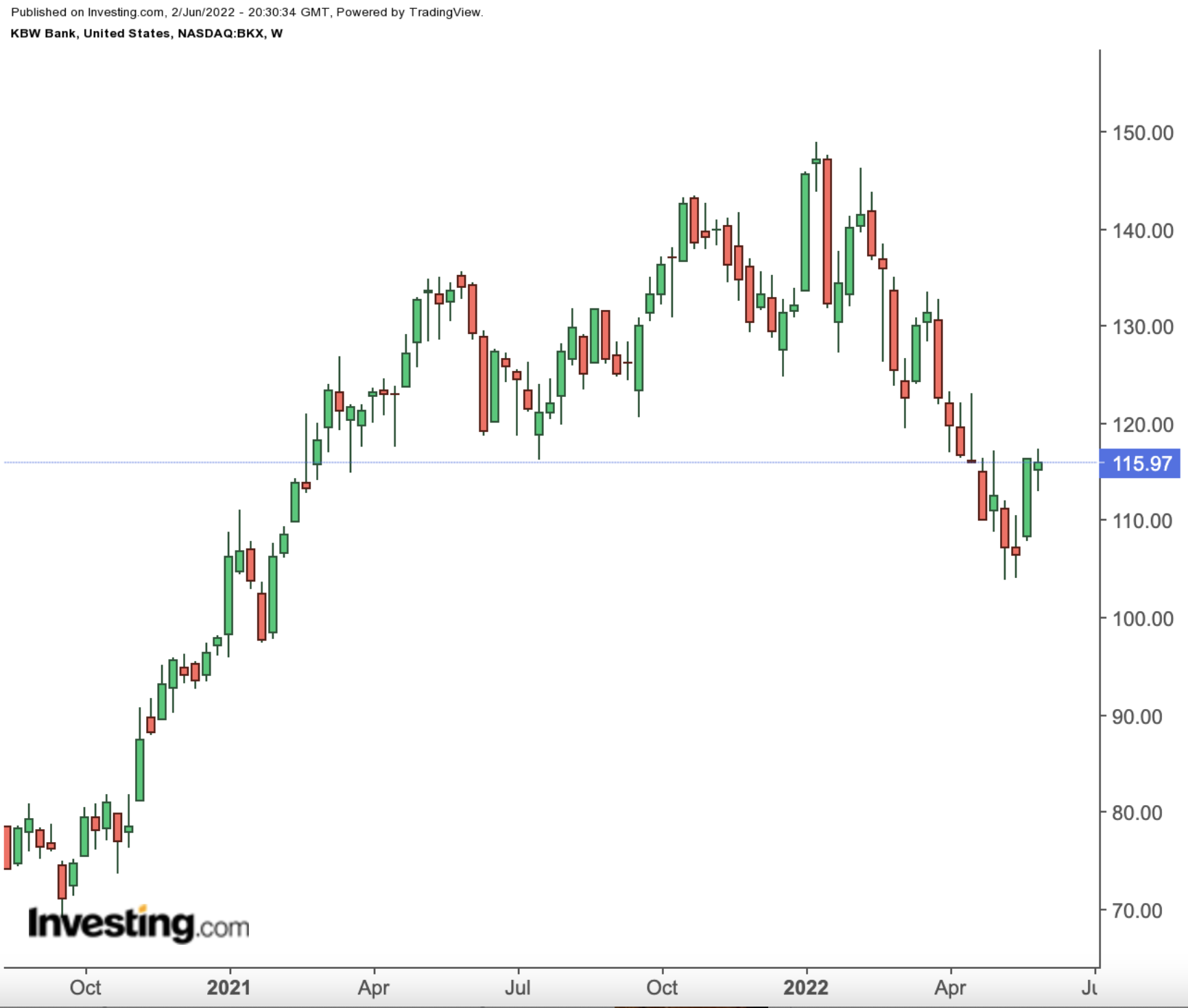One of the hottest trades in the market since the COVID-driven crash of 2020, the US banking segment, seems to have taken a turn for the worse this year. After surging 35% in 2021, the broad is now down more than 12% year-to-date.

Losses in the industry have been led by some of the largest lenders in the market, with Bank of America (NYSE:) and JPMorgan Chase (NYSE:) slumping around 17% each.
The decline raises eyebrows as banks, in theory, thrive when the central bank raises interest rates due to higher income from lending products, such as loans, mortgages, and credit card debt.
For instance, the last time the Federal Reserve started raising rates at the end of 2015, bank stocks sharply outperformed the over the next two years.
However, now that we are beginning what many believe will be one of the most aggressive monetary tightenings, banking stocks are falling. So why are investors dumping the sector?
One explanation is the risk of a recession which could remove many growth drivers for banks and neutralize the boost coming from higher interest rates. In this scenario, rates are rising, but consumers and businesses are struggling, either not borrowing as much or defaulting more often.
“Hurricane” Is on the Horizon
The warning for such a dreaded scenario comes from no one else but banks themselves. JPMorgan’s CEO Jamie Dimon warned investors yesterday to prepare for an economic “hurricane” as the economy faces challenges, including tightening monetary policy and Russia’s invasion of Ukraine.
Dimon said at a conference sponsored by AllianceBernstein Holdings Wednesday:
“That hurricane is right out there down the road coming our way. We don’t know if it’s a minor one or Superstorm Sandy. You better brace yourself.”
There are also signs that lenders are struggling to increase their incomes after several quarters of robust growth on the earnings front. Bank of America in April a 12% drop in first-quarter profit, followed by , (NYSE:), and (NYSE:)—all reporting double-digit declines in first-quarter earnings. All except Bank of America reported lower revenue.
The deal-making that had powered the industry’s investment bankers started to slow on Wall Street. After two years of pandemic-related disruptions, the last quarter was supposed to return to normal for US banks. Instead, Russia’s invasion of Ukraine also threw new hurdles into the global economy’s path to pandemic recovery, upending stock trading and commodities markets alike.
Due to those results, Morgan Stanley’s strategists recently downgraded the entire financials sector late in March, telling investors to prepare for slower US growth.
The silver lining is that consumers and businesses appear to remain financially healthy. Lending was up at many banks during the first quarter, a welcome turnaround after two years of tepid loan demand during the pandemic. Bank of America, the largest US bank, sees loan demand rising for new and existing credit products.
Bottom Line
With risks to economic growth rising and the future outlook turning more uncertain, investors don’t see bank stocks outperforming the market this year. However, many favorable growth drivers could still keep bank stocks supported, such as improving credit demand and higher margins on their lending products.
***
Interested in finding your next great idea? InvestingPro+ gives you the chance to screen through 135K+ stocks to find the fastest growing or most undervalued stocks in the world, with professional data, tools, and insights. Learn More »


